PRS: Practicing Research Skills
Computational Approaches
in Political and Social
Sciences
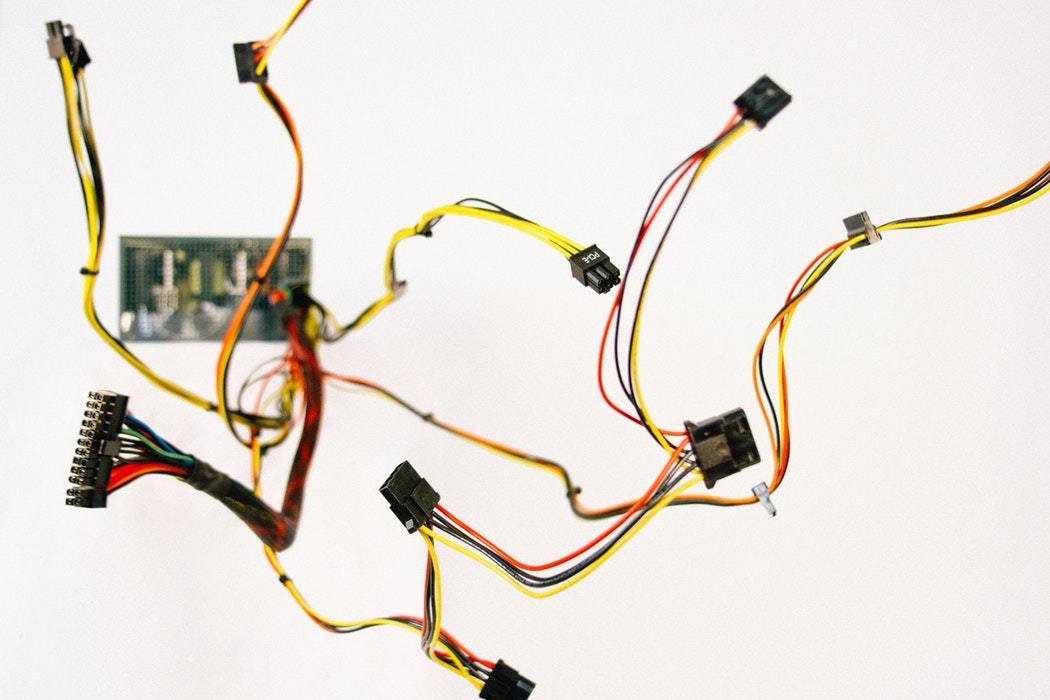
Week 1B: Introduction to data and methods. Wed 5 June
Diliara Valeeva and Eelke Heemskerk
Plan for Week 1
Mon 3 June: Introduction to the topic
=> Preliminary decision about the group project
Wed 5 June: Introduction to data and methods
=> Final decision about the group project
Fri 7 June: Skills tutorial
=> Writing a research proposal
Plan for today
1. Exploring datasets
2. Overview of methods
3. Discussing group work
Datasets
1. Twitter data
a) Osome dataset
b) Scraped twitter data
2. Presentations at IC2S2 (2015-2018)
1a. OSoMe: Observatory on Social Media
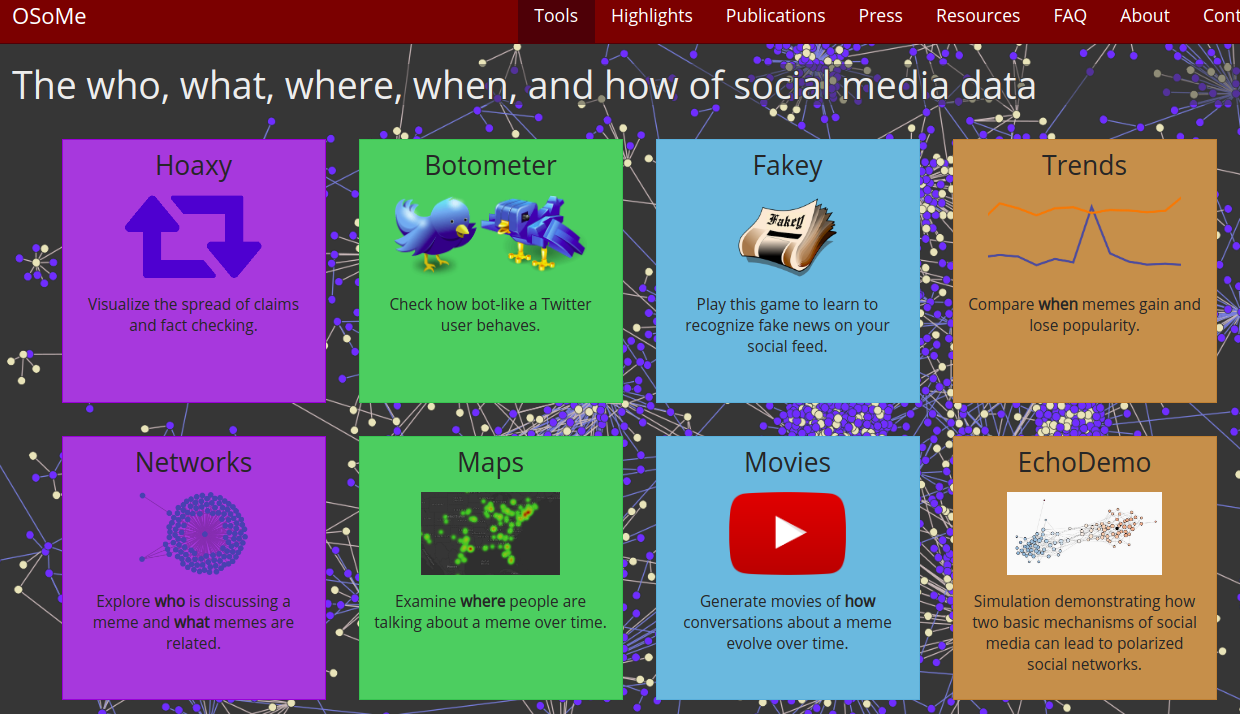
1b. Scraped Twitter data
- Tweets from the past 6-9 days
- Recent or the most popular tweets
- Search for keywords, phrases, hashtags
If you want to learn how to scrape Twitter data yourself: https://slides.com/diliaravaleeva/masm2019
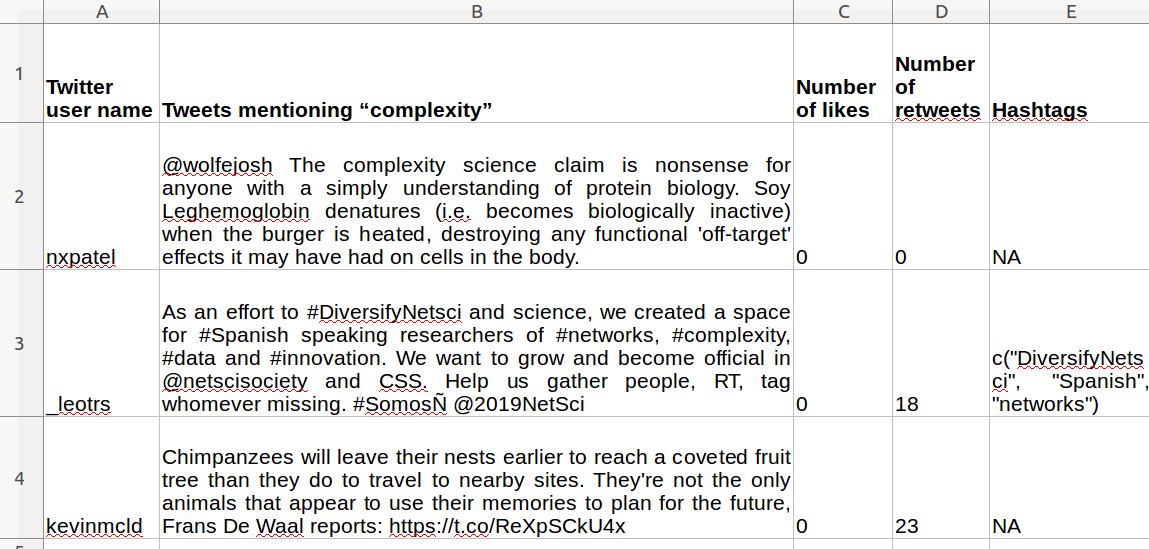
5 datasets
- computational social science
- social network analysis
- network science
- complexity
- complexity science
with tweets containing these words:
1. The structure of the data
- How many tweets?
- What's in columns?
2. Potential problems
- Repeated tweets
- Not relevant tweets
- Different languages etc.
2. Presentations at IC2S2
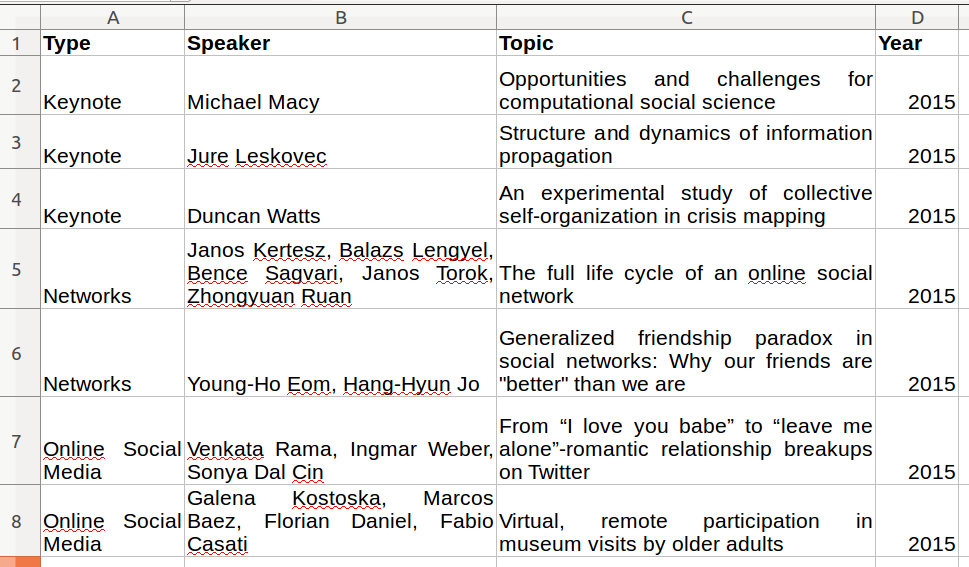
2. Presentations at IC2S2
What kind of networks can we build from this dataset?
node
tie
Nodes: authors
Ties: co-authorship
words
sessions
co-ocurrence
same authors
Methods
Descriptive statistics
- Frequencies, value counts
- Comparison of means
- Describing tendencies
- Plots
* using your favourite software
Content Analysis

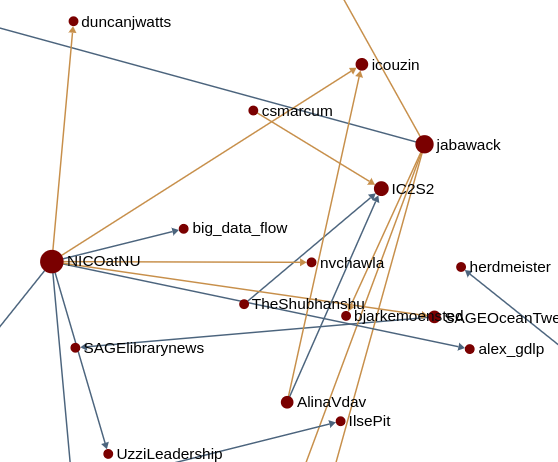
Network Analysis
Project 1.
Past & Present
Project 2.
Success
Project 3.
Neighbors
Project 4.
Key players
What is CSS?
Project 1. Past and Present
Questions:
-- What do CSS scientists study?
-- How does it change over time?
Data: online/offline
Methods:
- Comparing changes in topics over time
- Network analysis of popular topics
- Content analysis of titles over time
Project 2. Success
Methods:
-
comparing the topics presented as talks, posters or keynote talks
-
network analysis of popular authors
-
content analysis of titles per type of talk
Questions:
- Which topics are popular in CSS?
- Why are some papers accepted as talks while others as posters?
Data: online/offline
Project 3. Neighbors
Methods:
-
Analyzing the popularity of CSS-related tweets over time
-
Network analysis of hashtags
-
Content analysis of tweets about CSS and other fields
Questions:
- How is CSS related to other fields?
- What do people write about CSS and other related fields?
Data: online
Project 4. Key players
Methods:
-- Network analysis of the most popular authors and users
-- Describing their interests
-- Content analysis of tweets / presentation titles
Questions:
-- Who are the users writing about CSS online?
-- Who are the most popular authors at IC2S2?
-- What do they write about/work on?
Data: online/offline
Project 1.
Past & Present
Project 2.
Success
Project 3.
Neighbors
Project 4.
Key players
What is CSS?
To discuss
- Datasets to use
- Additional data?
- Methods of interest
- Potential problems
- Round of introductions
- Strengths of team members
- Ideas about collaboration
Summary
1. Exploring datasets
2. Overview of methods
3. Discussing group work
=> Friday: Skills tutorial on Network Analysis
Homework
1. Meet with your group members to discuss ideas about your group research proposal
Deadline for RP: Tuesday 11 June
2. Install Gephi https://gephi.org/ and follow the Gephi tutorial.
=> Find instructions on Canvas.